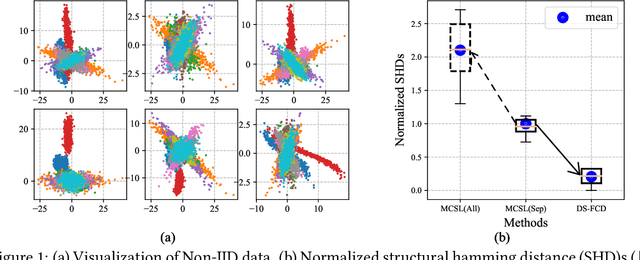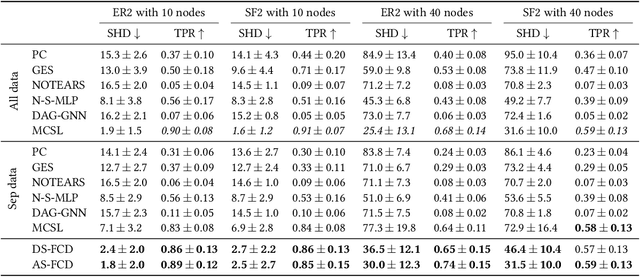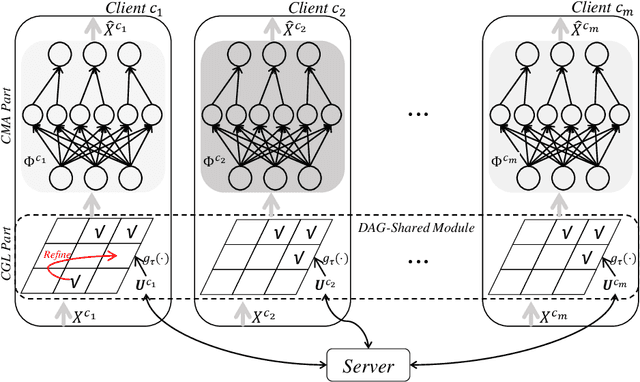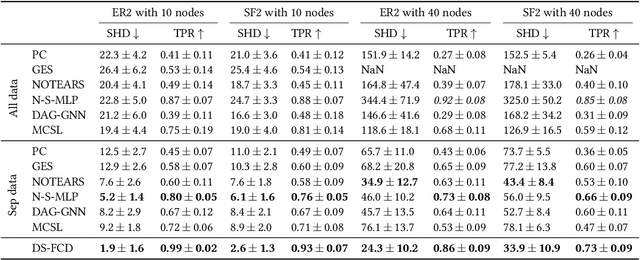Federated Causal Discovery
Paper and Code
Dec 07, 2021



Causal discovery aims to learn a causal graph from observational data. To date, most causal discovery methods require data to be stored in a central server. However, data owners gradually refuse to share their personalized data to avoid privacy leakage, making this task more troublesome by cutting off the first step. A puzzle arises: $\textit{how do we infer causal relations from decentralized data?}$ In this paper, with the additive noise model assumption of data, we take the first step in developing a gradient-based learning framework named DAG-Shared Federated Causal Discovery (DS-FCD), which can learn the causal graph without directly touching local data and naturally handle the data heterogeneity. DS-FCD benefits from a two-level structure of each local model. The first level learns the causal graph and communicates with the server to get model information from other clients, while the second level approximates causal mechanisms and personally updates from its own data to accommodate the data heterogeneity. Moreover, DS-FCD formulates the overall learning task as a continuous optimization problem by taking advantage of an equality acyclicity constraint, which can be naturally solved by gradient descent methods. Extensive experiments on both synthetic and real-world datasets verify the efficacy of the proposed method.
 Add to Chrome
Add to Chrome Add to Firefox
Add to Firefox Add to Edge
Add to Edge